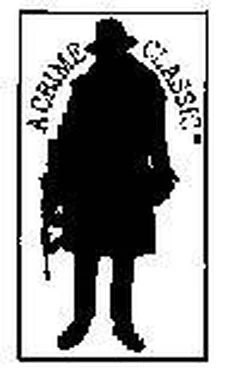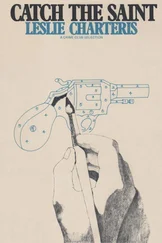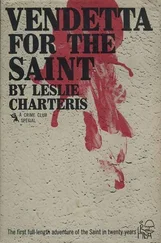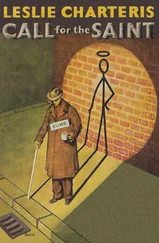Leslie Charteris - Knight Templar, or The Avenging Saint
Здесь есть возможность читать онлайн «Leslie Charteris - Knight Templar, or The Avenging Saint» весь текст электронной книги совершенно бесплатно (целиком полную версию без сокращений). В некоторых случаях можно слушать аудио, скачать через торрент в формате fb2 и присутствует краткое содержание. Город: New York City, Год выпуска: 1989, ISBN: 1989, Издательство: International Polygonics, Ltd., Жанр: Крутой детектив, на английском языке. Описание произведения, (предисловие) а так же отзывы посетителей доступны на портале библиотеки ЛибКат.
- Название:Knight Templar, or The Avenging Saint
- Автор:
- Издательство:International Polygonics, Ltd.
- Жанр:
- Год:1989
- Город:New York City
- ISBN:1-55882-010-8
- Рейтинг книги:3 / 5. Голосов: 1
-
Избранное:Добавить в избранное
- Отзывы:
-
Ваша оценка:
- 60
- 1
- 2
- 3
- 4
- 5
Knight Templar, or The Avenging Saint: краткое содержание, описание и аннотация
Предлагаем к чтению аннотацию, описание, краткое содержание или предисловие (зависит от того, что написал сам автор книги «Knight Templar, or The Avenging Saint»). Если вы не нашли необходимую информацию о книге — напишите в комментариях, мы постараемся отыскать её.
Knight Templar, or The Avenging Saint — читать онлайн бесплатно полную книгу (весь текст) целиком
Ниже представлен текст книги, разбитый по страницам. Система сохранения места последней прочитанной страницы, позволяет с удобством читать онлайн бесплатно книгу «Knight Templar, or The Avenging Saint», без необходимости каждый раз заново искать на чём Вы остановились. Поставьте закладку, и сможете в любой момент перейти на страницу, на которой закончили чтение.
Интервал:
Закладка:
And, truly, he told her much of his amazing career, and even more of the ideals that had shaped it to the thing it was. And because she was no fool she gleaned from the tale a clear vision of the fantastic essence of the facts—of D'Artagnan born again without his right to a sword. . . .
"You see," he said, "I'm mad enough to believe in romance. And I was sick of this age—tired of the miserable little mildewed things that people racked their brains about, and wrote books about, and called Life. I'm not interested to read about maundering epileptics, and silly nymphomaniacs, and anaemic artists with a Message; and I'm not interested to meet them. If I notice them at all, they make me want to vomit. There's no message in life but the message of splendid living—which doesn't mean crawling about on a dunghill yapping about your putrid little repressions. Nor does it mean putting your feet on the mantelpiece and a soapily beatific expression on your face, and concentrating on God in the image of a musical-comedy curate or Aimee Semple McPherson. It means the things that our forefathers were quite contented with, though their children have got so damned refined that they really believe the said forefathers would have been much 'naicer' if they'd spent their days picking over the scabs on their souls instead of going in for the noisy vulgar things they did go in for—I mean battle, murder, and sudden death, with plenty of good beer and a complete callousness about blipping the ungodly over the beezer. The low-down shocker is a decent and clean and honest-to-God form of literature, because it does deal with things that have a right to occupy a man's mind—a primitive chivalry, and damsels in distress, and virtue triumphant, and a wholesale slaughter of villains at the end, and a real fight running through it all. It mayn't be true to life as we know it, but it ought to be true, and that's why it's the best stuff for people to read—if they must read about things instead of doing them. Only I preferred to do them. ..."
And he told her other things, so that the vision grew even clearer in her mind—that vision of a heroic revolt against circumstance, of a huge and heroic impatience against the tawdry pusillanimity that had tried and failed to choke his spirit, of a strange creed and a challenge. . . . And with it all there was a lack of bitterness, a joyous fatalism, that lent the recital half its glamour; the champion of lost causes fought with a smile. . . .
"Of course," he said, "it makes you an outlaw—in spirit as well as in fact. But that again seems worth while to me. Isn't the outlaw one of the most popular figures in fiction? Isn't Robin Hood every schoolboy's idol? There's a reason for everything that people love, and there must be a reason for that—it must be the response of one of the most fundamental impulses of humanity. And why? For the same reason that Adam fell for the apple—because it's in the nature of man to break laws—because there's no real difference between the thrill of overthrowing a legitimate obstacle and the thrill of overthrowing a legitimate thou-shalt-not. Man was given legs to walk the earth; and therefore, out of divine cussedness of his inheritance, he chooses his heroes, not from the men who walk superlatively well, but from the men who trespass into the element for which they were never intended, and fly superlatively well. In the same way, man was also given moral limitations by his ancestors after God Almighty; and therefore he reserves his deepest and most secret admiration for those who defy those limitations. He would like to do it himself, but he hasn't the courage; and so he enjoys the defiance even more when it's done for him by someone else. But compare that pleasure with the pleasure of the outlaw himself, when he chooses his outlawry because he loves it, and goes forth into the wide world to rob bigger and better orchards than he ever dreamed of when he was a grubby little urchin with a feather in his cap!"
"Yes, but the end of it!"
"The end?" said the Saint, with far-away eyes and a reckless smile. "Well—
'What gifts hath Fate for all his chivalry?
Even such as hearts heroic oftenest win:
Honour, a friend, anguish, untimely death.'
And yet—I don't know that that's a bad reward. . . . Do you remember me telling you about Norman Kent? I found his grave when I came back to England, and I had those lines carved over it. And do you know, I've often thought I should be proud to have earned them on my own." He could talk like that with fresh blood upon his hands and his heart set upon another killing! For a moment the girl felt that it could not be true — she could not be sitting there listening to him with no feeling of revulsion for such a smug hypocrisy. But it was so. And she knew, at the same time, that that charge would not have been true — his simple sincerity was as natural as the half smile that went with the words.
So they talked. . . . And the Saint opened up for her a world of whose existence she had never known, a world of flamboyant colours and magnificently medieval delights. His magic made her see it as he saw it — a rich romance that depended on no cloaks or ruffles or other laboriously picturesque trappings for its enchantment, a play of fierce passions and grim dangers and quixotic loyalties, a tale that a man had dreamed and gone out to live. It was Gawain before the Grail, it was Bayard on the bridge of Garigliano, it was Roland at the gates of Spain; a faith that she had thought was dead went through it all, a thread of fairy gold with power to transmute all baser metals that it touched. Thus and thus he showed her glimpses of the dream; and he would have shown her more; but all at once she faltered, she who from the first had matched his stride so easily, she saw a step that he had deliberately missed, and she could not be silent. She said: "Oh, yes, but there are other things — in your own life! Even Robin Hood had to admit it!"
"You mean Maid Marian? ' '
"Roger told me. I asked him."
"About Patricia?"
"Yes."
The Saint gazed across the tiny cabin; but he could not see beyond the windows.
"Patricia—happened. She came in an adventure, and she stayed. She's been more to me than anyone can ever know."
"Do you love her?"
The Saint turned.
"Love?" said the Saint softly. "What is love?"
"You should know," she said.
"I've wondered."
Now they had been talking for a long time.
'' Have you never been in love? " she asked.
The Saint drew back his sleeve and looked thoughtfully at his watch.
"We ought to be getting near land," he said. "Would you mind taking over the wheel again, old dear, while I go and snoop round the horizon?"
HE WAS GONE for several minutes; and when he came back it was like the return of a different man. And yet, in truth, he had not changed at all; if anything, he was an even more lifelike picture of himself. It was the Saint as she had first met him who came back, with a Saintly smile, and a Saintly story, and a spontaneous Saintly mischief rekindling in his eyes; but that very quintessential Saintliness somehow set him infinitely apart. Suddenly, in a heart-stopping flash of understanding, she knew why. . . .
"Do they keep a lookout on any of your father's yachts?" he drawled. "Or don't they do any night work?"
"A lookout? I don't know."
"Well, they certainly stock one on this blistered buque, as they do on any properly conducted ship, but blow me if I hadn't forgotten the swine!"
"Then he must have heard you lowering that boat!"
The Saint shook his head. His smile was ridiculously happy.
"Not he! That's just one more point we can chalk up to ourselves for the slovenliness of this bunch of Port Mahon sodgers. He must have been fast asleep—if he hadn't, we'd have known all about him before now. But he woke up later, by the same token—I saw him lighting a cigarette up in the bows when I went out on the bridge. And it was just as well for us that he did take the idea of smoking a cigarette at that moment, for there was land on the starboard bow as plain as the hump on a camel, and in another few minutes he couldn't have helped noticing it."
Читать дальшеИнтервал:
Закладка:
Похожие книги на «Knight Templar, or The Avenging Saint»
Представляем Вашему вниманию похожие книги на «Knight Templar, or The Avenging Saint» списком для выбора. Мы отобрали схожую по названию и смыслу литературу в надежде предоставить читателям больше вариантов отыскать новые, интересные, ещё непрочитанные произведения.
Обсуждение, отзывы о книге «Knight Templar, or The Avenging Saint» и просто собственные мнения читателей. Оставьте ваши комментарии, напишите, что Вы думаете о произведении, его смысле или главных героях. Укажите что конкретно понравилось, а что нет, и почему Вы так считаете.












